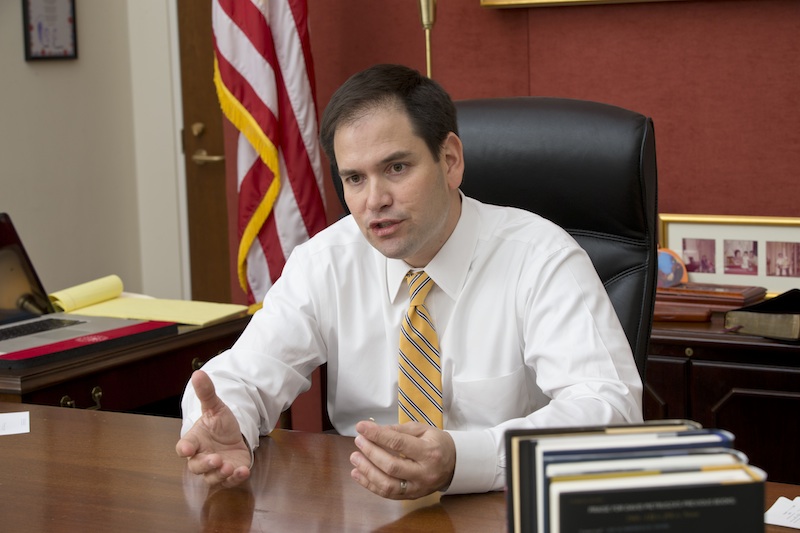A day after Republican senators in the Gang of Eight urged swift passage of a comprehensive immigration reform bill, members of their own party are pushing back — a move that puts Sen. Marco Rubio (R-FL), who is engaged in a delicate balancing act between the two sides, in a difficult position.
Following the announcement Wednesday of a Senate Judiciary Committee hearing on the comprehensive reform bill scheduled for April 17, Republican Sens. Jeff Sessions of Alabama and Mike Lee of Utah both released statements calling for a slower process over several hearings.
“It is an explicit rejection of the process demanded by Judiciary Committee Republicans and endorsed by Senator Rubio,” Sessions, a top opponent of immigration reform in the Senate and former ranking member of the Judiciary Committee, said in a statement. “To acquiesce to such a process would be to accept the Majority’s plan to rush through this massive legislation before the American people know what’s in it.”
In contrast to a single hearing on the bill — the Judiciary Committee has already held three hearings on immigration reform this year but as of Wednesday only next week’s hearing is scheduled — Sessions called for what would be a marathon of hearings on “every component of reform, including the extraordinary potential costs to taxpayers, the impact on wages and job prospects for the unemployed, and the Administration’s continued refusal to enforce the laws previously enacted by Congress.”
Lee echoed these concerns in his own statement: “A single hearing scheduled so quickly to discuss legislative language that is not yet even available is completely inadequate for Senators or the American people to get answers to the many questions a bill of this magnitude will inevitably raise. We could not possibly have a meaningful hearing with a substantive discussion of what will surely be over 1,000 pages of provisions we haven’t even yet seen.”
On the other side, Sen. Lindsey Graham (R-SC), a member of the Gang of Eight and a longtime proponent of reform, believes one hearing would be sufficient. “We did [one hearing] in 2006,” Graham said on Tuesday, referring to the last attempt to pass comprehensive reform. “It was good enough for us in 2006.”
In the middle is Rubio, who has tried not to alienate the right by expressing sympathy for Sessions’ demands. But as TPM has previously reported, if Rubio gives more than lip service to slowing down the process, he could end up derailing it.
Update 6:35 p.m.: Sen. Leahy responded to his Republican critics in a statement, charging that “some opponents of immigration reform will never be satisfied and will attempt to delay this process no matter how we proceed.”






